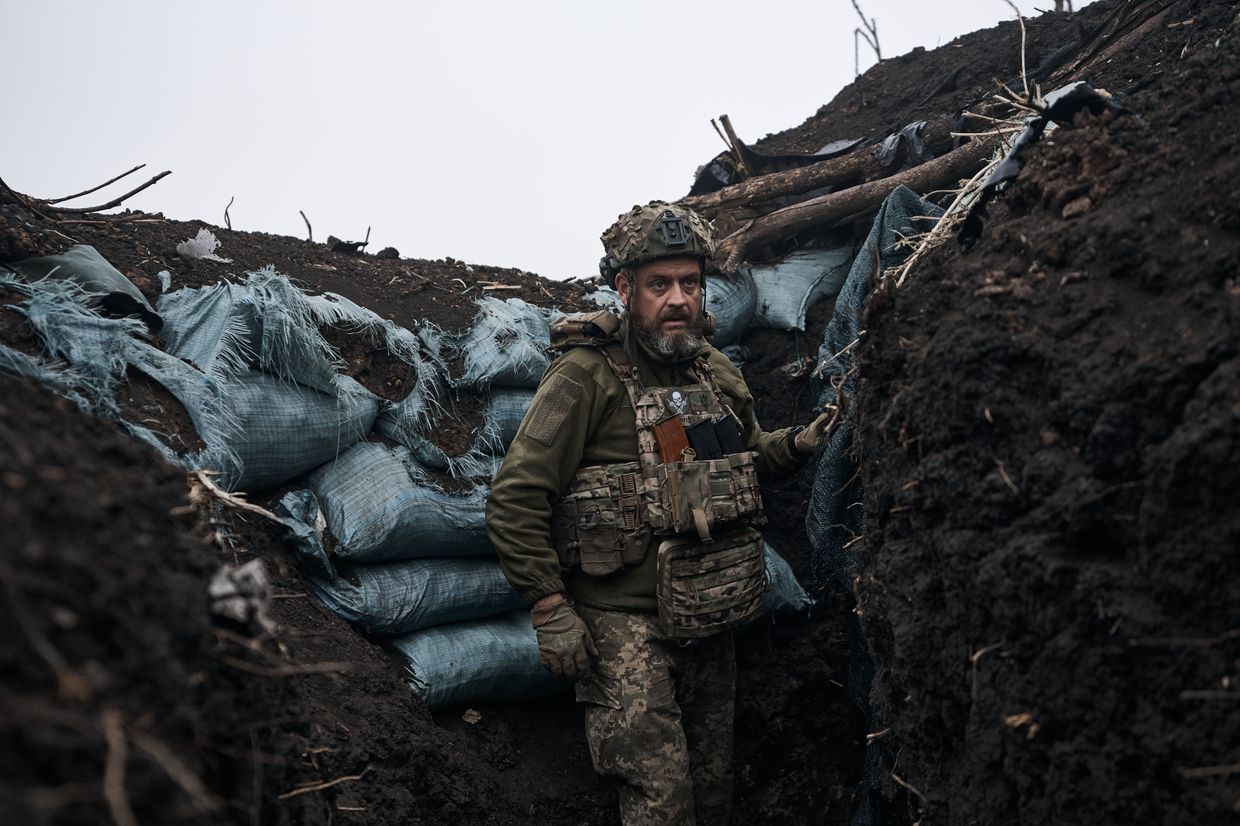Ukrainian society largely does not want to mobilize. Nearly 6 million Ukrainian men have not updated their information in military enlistment centers, and most of them likely don't have grounds for a deferment or exemption. Forced mobilization of these men is categorically opposed by society. Rosy-cheeked aunts gather and shout "shame" at military enlistment officers tasked with searching for draft dodgers.
Society is also resistant to the mobilization of 25-year-old "children." However, this sentiment does not extend to the sons of elites and deputies, who are readily and unhesitatingly deemed fit for the front lines. "Let (former Ukrainian President Petro) Poroshenko's and (Ukrainian President Volodymyr) Zelensky's sons fight," they say. There is also a reluctance to pay more taxes — and I’m not even addressing the other duties or requirements imposed during martial law.
Furthermore, society is adamantly against sending soldiers from other branches of the military into infantry. Being in the infantry is not seen as an honor for Ukrainian soldiers but as something dirty and undignified — a form of punishment. At the same time, society strongly opposes sending poorly trained recruits into infantry. Ten years of war and three years of full-scale invasion weren't enough to prepare Ukrainian men. Now, they must undergo at least six months of preparation, preferably abroad, where it's easier to avoid service.
One can talk endlessly about drone warfare and a shortage of equipment and artillery, but it's the infantry that holds the front line. The front line stretches 3,000 kilometers, with active combat continuing on a third of it. Society is unwilling to answer the question of where the military command should find the personnel to maintain the line against a vastly superior enemy — let the government solve this, but without mobilizing anyone and, God forbid, calling up 25-year-olds.
"One can talk endlessly about drone warfare and a shortage of equipment and artillery, but it's the infantry that holds the front line."
Let the MPs, prosecutors, and police officers go to war. Never mind that there aren't enough MPs and prosecutors to form even one regiment, and police officers have already been fighting with full brigades from the start.
Society has failed the test of maturity. The political opposition battles the government as though elections are just around the corner, despite the fact that elections cannot be held during martial law. Instead of seeking compromises with the opposition, the government prefers to keep political traitors and collaborators on a leash, cooperating with them while losing more and more credibility.
One can rightfully criticize the government for its failures. It’s fair, they exist. But the government is a reflection of the views and politics of society. There is no demand for mobilization, and thus there is no adequate mobilization policy. There is no demand to transition the country’s economy to a wartime footing, and so there are no corresponding unpopular decisions.
However, the issue of the enemy’s total advantage in infantry remains unresolved. Yes, our partners are right. If we want the world to protect democracy in Ukraine, Ukrainians themselves must be the first to defend our democracy. There will be no negotiations on terms that suit us while the enemy continues to seize more and more territory. It’s time to remove the rose-colored glasses. The West favors strong partners, but as we retreat daily, we are not seen as strong, no matter how much weapons and money we receive. They are telling us this directly.
Are there issues with military management? Of course. But if you believe this is some secret plan by spies working for the enemy within our General Staff, I pity you. That’s conspiracy theory-level thinking, like believing the Earth is flat.
What reforms can we talk about when the only goal of the military command is to hold the front line from collapsing and prevent the enemy from breaking through into our rear? All available reserves are being used. That’s why we see mismatches of various units on small sections of the front line, leading to management problems.
In my opinion, there is no point in discussing management reforms without creating reserves that would ensure the implementation of those reforms. Forming these reserves is purely a political issue that must be addressed with political decisions. This question should be directed to political leaders, not military command.
Zelensky and Ukraine's parliament bear full responsibility for what is happening on the front line. These two political entities failed mobilization. To fix this, unpopular political decisions must be made, regardless of ratings and the opportunistic opposition, which will inevitably exploit this. Otherwise, we won’t make it.
Editor’s Note: The opinions expressed in the op-ed section are those of the authors and do not necessarily reflect the views of the Kyiv Independent.
















